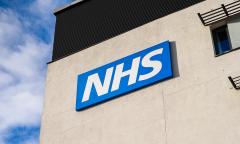NHS dental care
Our ‘Care and treatment: your rights and choices’ information explains your rights and choices with regard to your epilepsy care and treatment. ‘Rights’ are in the NHS Constitution and the Handbook to the NHS Constitution, and you are entitled to them by law. Where we say ‘you should’, you may not have a legal right, but these are recommendations made in the NICE (National Institute for Health and Care Excellence) guideline on epilepsy.
You have a right to access NHS dental care
“The NHS will provide any clinically necessary treatment needed to keep your mouth, teeth and gums healthy and free of pain.” nhs.uk/nhs-services/dentists
Anyone whose dentist thinks they need dental treatment that is clinically necessary, has the right to have this treatment done on the NHS.
You may have to pay a charge for your dental treatment and there are three bands of charges, but for some people, such as those on a low income, NHS dental treatment is free.
You should be informed about the treatment options and your dentist must make clear what will be paid for by the NHS and what you must pay for privately.
Find a dental surgery that’s convenient for you and contact them to see what appointments are available. If you cannot find a dentist accepting NHS patients, call NHS England’s Customer Contact Centre on 0300 311 2233.
If you are unhappy with the service your dentist is providing, you can complain to your dental practice manager or to NHS England ‘s Customer Contact Centre on the above number.
For more about NHS dental treatment visit nhs.uk/nhs-services/dentists
Information updated: March 2023
Download this information
For a printed copy contact our Helpline.
Epilepsy care - your rights
Our 'Epilepsy care - your rights’ information explains your rights and choices with regard to your epilepsy care and treatment.
Sources for Epilepsy care - your rights
Sources used to develop Epilpesy care - your rights.
Epilepsy Care Pathway
A clear care pathway to show you what to do from the first seizure to referrals and reviews.



